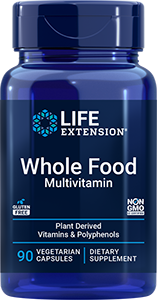
How to Choose the Best Vitamins and Supplements: Dietitian's Guide
Published: January 2020 | Updated: October 2024
When it comes to supplements, there are a lot of options! So how do you know which ones you need? Break this task into smaller parts: determining which nutrients you need—the foundational supplements that most adults would benefit from, plus ones that will address your unique health needs—and then finding formulas that are high-quality from reputable brands.
This sounds easy enough, but with all of the "noise" on social media, being able to tell your fish oil from snake oil can be tricky. You can also run into pitfalls such as skipping out on nutrients you need because you think you're getting enough from your diet (not realizing things like soil degradation may mean you're not getting enough of the nutrients you need to thrive).
Not to worry, as a registered dietitian, I'm happy to guide you through this process.
What are vitamins and supplements?
Before we get too far, let's start with a definition: what are supplements? Dietary supplements are intended to add or (as the name suggests) supplement the diet. They are an extension of your nutrition, which is largely obtained from your diet. Supplements include vitamins such as vitamin C, but also include minerals (magnesium, calcium), herbs and botanicals, amino acids, probiotics and hormones. These ingestibles are available in a variety of delivery methods such as tablets, softgels, capsules, powders, gummies and liquids.
3 steps to your optimal supplement routine
Follow these steps to identify the supplements that will support optimal health, your goals, and offer you the benefits promised on the label.
Step 1: Start with a solid foundation
Fact: many of us don't get the nutrients we need from diet alone, and we tend to be missing some of the same core vitamins and minerals. According to the 2020 - 2025 Dietary Guidelines for Americans, calcium, potassium, fiber, and vitamin D are considered dietary components of public health concern for the general U.S. population because low intakes are associated with health concerns.
Though not included on that list, according to surveys, magnesium, an important mineral, is another nutrient that is under-consumed, with half of Americans not getting enough.
To fill in gaps from our diet and support optimal health, here are three foundational supplements most people should take:
Multivitamin:
This is a must-have if you're not eating fruits and vegetables with your meals and snacks. A multivitamin will offer all of the key vitamins plus minerals, like magnesium. A multivitamin will include vitamin D, but sometimes additional vitamin D supplementation is needed. Achieving optional levels of vitamin D can be especially difficult if relying on dietary sources and sun exposure alone. Some multivitamins will also provide calcium, but it is difficult to fit enough of it in a multi, so additional calcium supplementation may also be warranted depending upon your needs.Probiotics:
Do you eat fermented foods often? Fermented foods provide beneficial bacteria to support gut health. Most of us aren't getting enough beneficial bacteria from our diet alone, even if we consume yogurt weekly. Supporting a healthy microbiome with the beneficial bacteria from a probiotic supplement is not only important for healthy digestion but also for immune health.Fish oil:
Getting enough omega-3 fatty acids, including EPA and DHA, is very important for brain health, heart health and so much more. It can be difficult to obtain enough from our diet, especially DHA, since fish fatty fish consumption often falls short. That's why fish oil is an excellent choice as a foundational supplement for just about everyone. If fish isn't for you, try an algae-based DHA supplement.
I Eat Healthy Every Day: Do I Need Vitamins and Supplements?
Probably! It's true that there are people whose everyday diet includes the recommended five to seven servings of fruit and vegetables that are grown in nutrient-rich soil, and generally eat a balanced, variety-filled diet that also includes other nutrient-dense foods such as nuts, beans and whole grains. But when compared to the recommended guidelines, most Americans have substantial room for improvement: Center for Disease Control and Prevention data from the National and Nutrition Examination (NHANES) shows that more than 80 percent of people have dietary patterns that are low in vegetables and fruits. That's a lot of vitamin C not making it to the dinner table! And almost 90 percent do not meet the recommendation for seafood (8 ounces/week), an important source of omega-3 fatty acids.
Frankly, even for those of us who do eat the rainbow, the RDAs are often inadequate to support optimal health; they are the bare minimum. Shouldn't we strive for the best possible health?
Vitamins and supplements are a key part of a healthy living strategy. They are a great choice for those who are looking to support optimal health, healthy aging, meet certain health goals, and fill in gaps from their diet.
Explore Our Best General Health & Wellness Supplements
Step 2: Customize: add supplements to support your needs and personal health goals
Those core formulas aside, vitamin and supplement needs will vary depending on the person and their age, sex, lifestyle, health status and dietary choices. Let's look at each of these criteria.
Age
Everything may be fun and games for the under-40 crowd, but with advancing age, biological processes and cellular changes occur. For example, did you know that CoQ10 is present in every cell in the body? CoQ10 is an antioxidant that helps support your heart health and fights general fatigue. As you get older, your body produces less and less CoQ10. And dietary sources provide very little CoQ10, which is why you might consider supplementing.
One other major change is a decrease in hormone production, which can impact multiple areas of health, ranging from loss in muscle mass to changes in your mood. While there are gender-specific supplements designed for menopause and prostate health, both men and women may benefit from hormone balance supplements.
A healthy aging option that's gained some traction among celebrities and influencers of late is NAD supplementation, but unlike a lot of hyped-up supplement fads, this one has scientific research showing the importance of maintaining healthy levels. NAD, which stands for nicotinamide adenine dinucleotide, plays a huge role in everything from energy metabolism to aging, and by age 40, our levels of this coenzyme typically plummet by 50% from what they were in our youth. That's why supplementing with a precursor to NAD called nicotinamide riboside (vitamin B3) is a good tool to have in your anti-aging arsenal!
Sex
Men and women have some similar nutrient needs, but also some unique requirements. For women, these needs can be tracked according to their life stage: prenatal vitamins for those with pregnancy plans when getting folic acid is top of mind, perimenopause and menopause support when the hot flashes and mood swings come calling, and bone density formulas for those golden years.
The best supplements for men also address age-related changes, but also will include supplements for healthy testosterone levels and muscle mass, which benefit men of all ages.
Lifestyle
Are you a workaholic who can't unwind after a long day of meetings? Stress management supplements may help you (finally) clear your mind. Your level of physical activity can also influence your needs. For those hitting the gym, creatine, whey protein and carnitine probably deserve spots in your supplement stack. And if you're traveling frequently, you're not going to want to leave vitamin C, zinc and other immune formulas at home—which are also a must for anyone facing off more than their fair share of "challenges" to their natural defenses. (Preschool teachers, healthcare professionals, we're talking to you!)
Health status
The right nutrients can help you optimize your thyroid function, support heart health, aid digestion, and even help you get better at remembering where your keys are by encouraging your working (short-term) memory.
Promoting a healthy inflammatory response in the body is a common health goal. That's where a turmeric extract with standardized amounts of curcumin comes in! Curcuminoids are the compounds in turmeric that help inhibit inflammation to support our joints and vital organ health by providing cellular protection against free radicals.
Dietary pattern
You will also need to consider your diet and food preferences. For example, vegans are likely to require supplementation to obtain nutrients found in animal-based foods, such as amino acids, iron, calcium and vitamins D and B12. On the flip side, if you eat plenty of meat but can't stomach broccoli, you could be missing out on the many benefits of cruciferous vegetables, not to mention fiber!
Work with your healthcare providers, including your doctor and registered dietitian to help you determine your individual needs.
Can Lab Testing Help Determine My Needs?
Yes! Another key element in customization is lab testing. Lab testing every six months can help you monitor your health status. For example, lab testing is a great way to check your nutrient status, including levels of vitamin D, fatty acids, folate and CoQ10. Routine blood work is also vital for monitoring your heart health, hormones, organ function and overall nutrition status.
Step 3: Choose a high-quality supplement brand
Now you've got your list assembled of what foundational supplements you need, plus others to help you achieve your health goals. So which products should you buy? Ultimately, the best vitamins and supplements are those of high quality that provide health benefits as demonstrated by clinical research studies, and not all brands will offer this level of documentation to their consumers. Those that do (like Life Extension!) will be able to provide you with details from published clinical studies.
Additionally, at a bare minimum, supplement brands should test their raw materials to ensure quality and safety. They should also test the final products for microbes, heavy metals, disintegration, and verify the quantity of the active ingredients. Transparency about these testing procedures and information about manufacturing practices should be available.
Looking for a brand that goes the extra mile? You may be wondering about third-party testing. A best practice is for an independent public health organization to audit the brand's manufacturing facilities to ensure compliance with GMP (Good Manufacturing Practices) requirements. As an additional check of quality, Life Extension partners with third party testing labs such as ConsumerLab for independent spot checks on some of our most popular products.
A few additional criteria to consider (because your body deserves the best):
Manufacturing practices:
Choose a brand that manufactures most or all of its products in the United States. 99% of Life Extension's 400+ products are manufactured in the United States.Standardized ingredients:
Standardization of key compounds is important, so you'll want to ensure that information is provided on the label for best results. For example, how much curcumin is provided in a turmeric extract? Does it match the amount that has shown to provide benefits in research?Non-GMO ingredients:
Many consumers prefer products that are made without genetically modified ingredients. If this is important to you, check for a non-GMO designation. The vast majority of Life Extension's 400+ formulas are non-GMO.Documentation:
Everything about a product—its testing, dosage, and more—should be available if you ask for it. Life Extension offers a COA (Certificate of Analysis) for every supplement.
Can you take vitamins and supplements daily?
Yes, most vitamins and supplements can and should be taken daily in order to continue receiving their benefits. There are also some supplements that can be taken on an as-needed basis. Refer to the dosage and use instructions on each bottle for specific instructions or take as recommended by a healthcare practitioner.
Keep in mind that individual results vary based on individual biochemistry and depend on the health goal that a given nutrient has been researched for and if that same goal aligns with your health goal. In general, two to three months of use is a good time frame to see the full effects. Duration of use, dose, individual biochemistry, genetics, and targeted health goal are all factors when it comes to results.
When it comes to our health, there is no one-size-fits-all approach. But with this three-step plan, you should be able to locate the most effective formulas for your needs.
Ready, set, supplement!
Pro tip: Not sure where to start? Take a health quiz for personalized supplement recommendations.
References:
- Monagas M, et al. "Understanding plant to extract ratios in botanical extracts." Front Pharmacol. September 2022. https://www.ncbi.nlm.nih.gov/pmc/articles/PMC9561911/
- Richter CK, et al. "Total Long-Chain n-3 Fatty Acid Intake and Food Sources in the United States Compared to Recommended Intakes: NHANES 2003-2008." Lipids. November 2017. https://pubmed.ncbi.nlm.nih.gov/28956299/
- Rimm EB, et al. "Seafood Long-Chain n-3 Polyunsaturated Fatty Acids and Cardiovascular Disease: A Science Advisory From the American Heart Association." Circulation. July 2018. https://pubmed.ncbi.nlm.nih.gov/29773586/
- Silver WL, et al. "The role of soil in the contribution of food and feed." Philos Trans R Soc Lond B Biol Sci. September 2021. https://www.ncbi.nlm.nih.gov/pmc/articles/PMC8349637/
- Dietary Guidelines for Americans 2020 – 2025. U.S. Department of Agriculture. https://www.dietaryguidelines.gov/sites/default/files/2020-12/Dietary_Guidelines_for_Americans_2020-2025.pdf
- "Micronutrient Inadequacies in the US Population: an Overview." Data on file.
Like what you read?
Please subscribe to get email updates on this blog.











